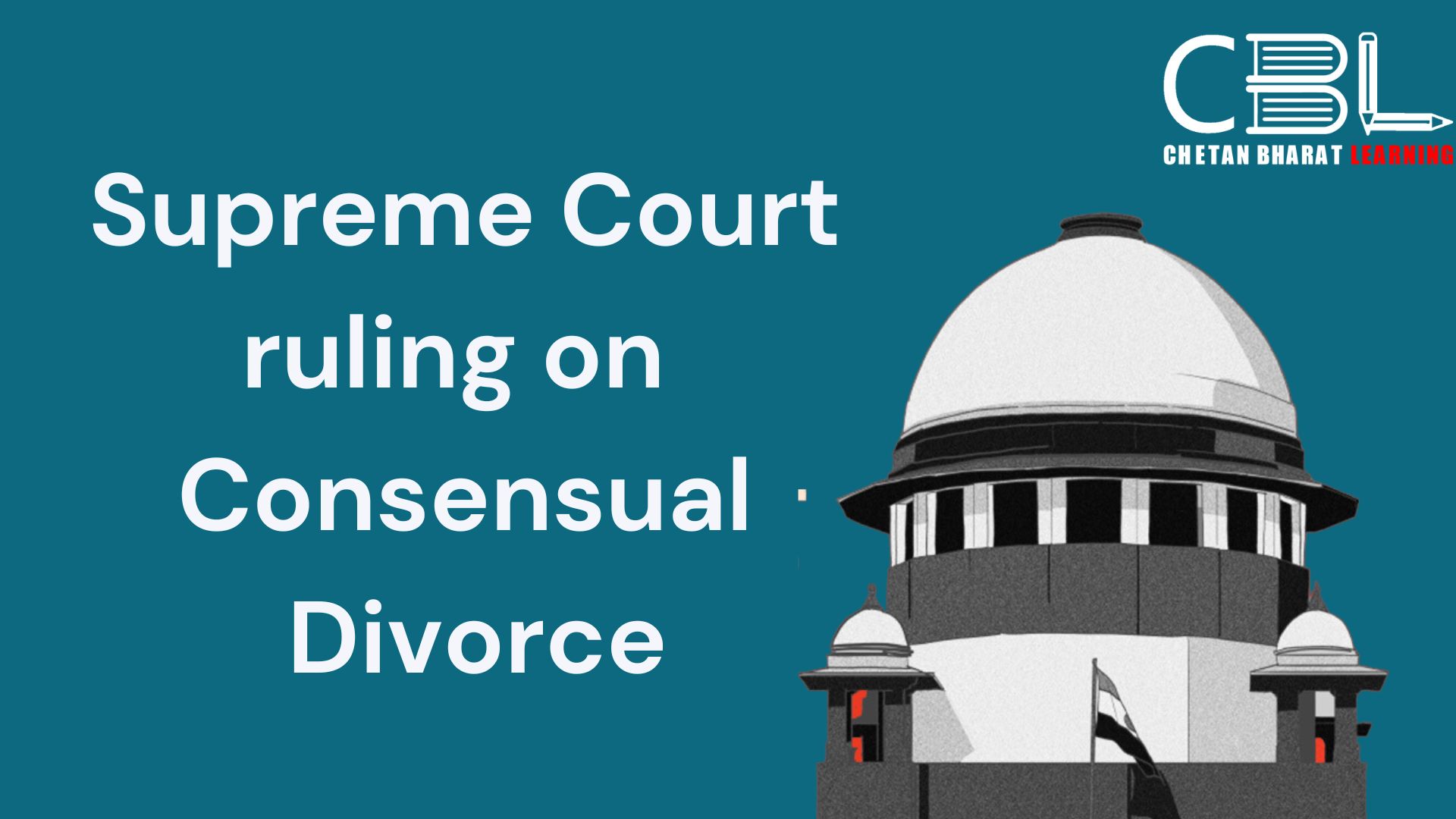The Supreme Court Bench ruled that it can exercise its plenary power to do “complete justice” under Article 142(1) of the Constitution to dissolve a marriage on the ground that it had ‘broken down irretrievably’, without referring the parties to a family court where they must wait 6-18 months for a decree of divorce by mutual consent.
“Irretrievable breakdown” :
Factors :
▪ The first and most “obvious” condition is that the court should be fully convinced and satisfied that the marriage is “totally unworkable, emotionally dead and beyond
salvation and, therefore, dissolution of marriage is the right solution and the only way forward”.
The court has also laid down the following factors:
• The period of time that the parties had cohabited after marriage;
• When the parties had last cohabited;
• Nature of allegations made by the parties against each other and their family members;
• Orders passed in the legal proceedings from time to time;
• Cumulative impact on the personal relationship;
• Whether, and how many attempts were made to settle the disputes by a court or through mediation, and when the last attempt was made.
Current procedure for divorce under the Hindu Marriage Act
Section 13B of the HMA provides for “divorce by mutual consent”.
• Filing of divorce: Both parties to the marriage must together file a petition to the district court “on the ground that they have been living separately for a period of one year or more, that they have not been able to live together and that they have mutually agreed that the marriage should be dissolved”.
• Mandatory “cooling-off” period : Under Section 13B(2) of the Act, the parties must move a second motion before the court “not earlier than six months after the date of the presentation of the [first] petition and not later than eighteen months after the said date, if the petition is not withdrawn in the meantime”.
▪ The mandatory six-month wait is intended to give the parties time to withdraw their plea.
• Decree of divorce: Thereafter, “the court shall, on being satisfied, after hearing the parties and after making such inquiry as it thinks fit that the averments in the petition are true, pass a decree of divorce declaring the marriage to be dissolved with effect from the date of the decree”.
Exemptions:
• A petition for divorce by mutual consent can be moved only after a year of the marriage.
▪ However, Section 14 of the HMA allows a divorce petition sooner in case of “exceptional
hardship to the petitioner or of exceptional depravity on the part of the respondent”.
• A waiver of the six-month waiting period under Section 13B(2) can be sought in an exemption application filed before the family court.


Leave a Reply
You must be logged in to post a comment.